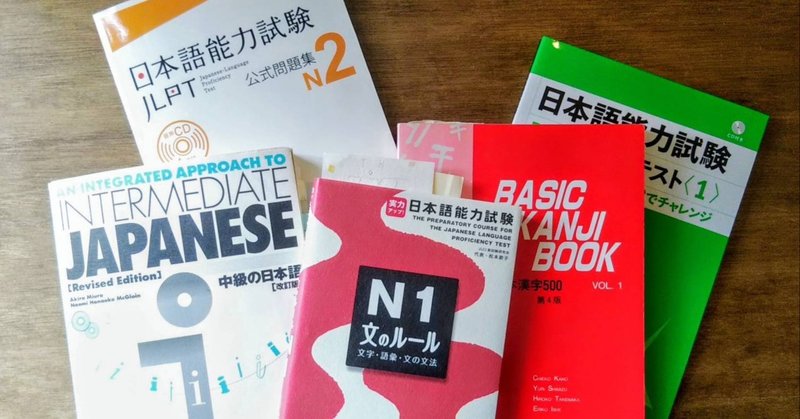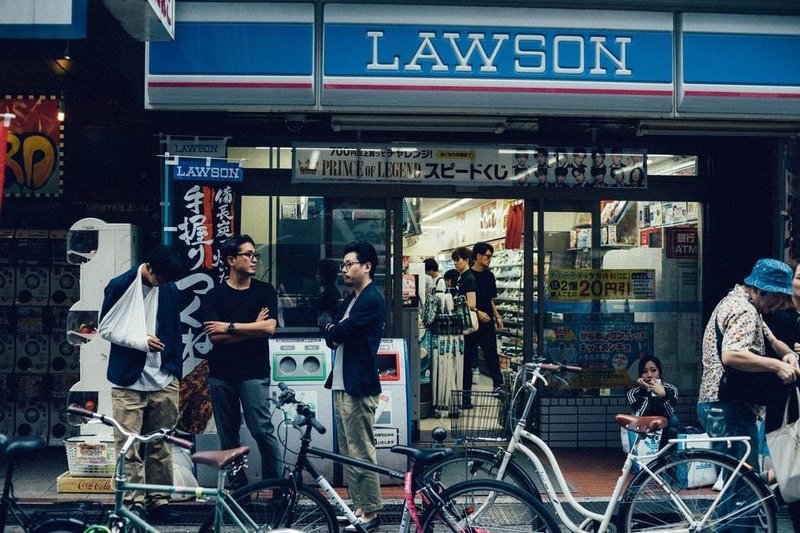
How to help people understand you can speak Japanese / 日本語が話せることを分かってもらうには
For non-ethnic Japanese people, living in Japan presents itself with a number of challenges, with standing out physically and socially being the greatest of them all. In most cases, these are しょうがない (unavoidable) and the degree to which they affect someone depends greatly upon the individual. There are some methods, though, that we can use to help ease the situation and make our every day feel less like we are in a zoo exhibition.
I am not an expert, and these are just my thoughts as a foreigner living in Japan, but I figured I could share some of my ideas based on my own experiences, and those of others who have shared with me.
Living in a Bubble
There are plenty of people living in Japan, especially Tokyo, who thrive in unassimilated bubble communities with their cohort of other internationals or Japanese friends proficient in a foreign language. This totally makes sense. There is a niche for people like this at international companies, as well as various commercial and social circles. In a sense, it is easy to get by without speaking any Japanese, especially in big cities.
Upon arriving in Japan, the first new friends I made were fellow classmates at university who had come from Germany (who speak fluent English). In addition, I attended several so-called "language exchange" events were we could meet Japanese people, most of whom wished to practice their English. If it weren't for my own personal interest, I could have gotten used to that. I could have been "popular" maybe. Perhaps for many, it is easy to default to this. If the people around you speak your language, why take all the time to study Japanese, right? This is especially attractive due to Japan being so accommodating. Even if you cannot communicate smoothly, Japanese people will always try to help.
This lifestyle is certainly not for everyone though, especially if you have put in the work to learn the language. Autumn 2020 will mark my tenth anniversary of beginning my Japanese studies. That is crazy. It is depressing how slowly my language skills are progressing, but also totally clear why so many people give up.
HOWEVER, if you enjoy it, DO NOT give up!
Gaijin Aura
Okay, so you are living in Japan, you want to avoid staying in a bubble, and let's say you want to reach some level of integration, but you have noticed that every time you talk to someone, they get super nervous or reply in English.
In my own personal experience, I feel like there might be some sort of aura that gaijin (foreigners) get when first coming to Japan. I lived in Tokyo for one year when I was a university student. At the time, my Japanese increased to a fairly decent level, I could hold my own in conversations, and people recognized that. Then I came back a year and a half later on a working visa. One day, I went to Don Quijote and the old woman at the register took the coins right out of my hands because she thought I was just a tourist and didn't know what Japanese money was. Ohhhh. I wanted to die. What happened? The gaijin aura had come back.
Study (More)
How do we get rid of the gaijin aura? Well, it takes time. Learning Japanese mannerisms, movements, gestures: clearly it is not only language; however, language is a big part of it.
If you wish to live outside a bubble, it is neccessary to study Japanese seriously and consistantly. Take a Japanese beginner's course, learn basic kanji, make Japanese friends (who want to speak in Japanese), try reading Japanese books, learn what they are actually saying during train announcements, master a 3,000 word vocabulary book, watch every video in a JLPT N1文法 (grammar) series. Subscribe to Dogen's patreon! Do whatever you need to do to build your own confidence and ability so that you can actually manage speaking Japanese to some extent. Perfection is not the goal. Just adequacy.
Let's say that you have confronted these challenges head on and you are now ready to dive into Japanese society, confident that you can travel around the city by yourself and even speak Japanese to a certain degree. To gauge your progress, there are certain levels that you can try to clear.
The Conbini Stage

Can you effectively get around a conbini (convience store) using only Japanese?
You get your bento, get in line, and then the person in front of you asks for some fried chicken from the heated display up front. You think "Oh man, that karaage does look good.” But then you panic. "What do I say? 唐揚げください (Karaage please)?What is the counter for karaage? Oh no! And what about this bento? Is she going to ask if I want it heated or not? No. Never mind, I'll put it back. I'm getting an onigiri and miso soup!"
Disappointment. But next time, you are determined. You'll get that chicken! Take a deep breath, get in line. The clerk calls the next customer. You blurt out some Japanese, hoping something is correct and use your fingers to indicate the chicken you'd like. By some miracle, the clerk understands. Finally! You'll get that greasy fried chicken goodness! A smile spreads across your face as you realize you have passed the conbini stage and are now free to get conbini karaage anytime. Congratulations!
You are about to grab your things from the counter, when, after all your effort, the clerk sticks a fork in your bag. Ouch. It happens, but it’s okay. Take it as a learning opportunity that perhaps your accent was off, or word choice wasn't exactly right. With that being said, if you are confident in your abilities, you do not need to leave it at that. You could say 「えと、お箸を頂いてもいいですか?」 (Could I have chopsticks?).
Asking for the receipt is also a good way to show that you speak at at least a basic level of Japanese. In addition, if you continue going to the same conbini, eventually they will realize that you don't need special treatment. Confining yourself to a select range of stores may not be the most preferable option, but if you are already frequenting the same places on a regular basis, why not make an impression?
Observation and Imitation
As stated above, learning mannerisms, movements, and gestures is also very important. Imitating the actions of Japanese people is one of the best ways of shedding that gaijin aura in terms of your appearance. Ever notice that basically the only people walking around with their arms in a 90 degree angle holding coffee cups are foreigners? Japanese people usually don't do this. Several other examples of this would be not following the direction people walk (on the left [in Tokyo*], which I didn't realize until my American friend pointed it out to me while he was visiting**), not using an umbrella when it rains, wearing t-shirts and open shoes during the cold months, and eating the last gyoza with no hesitation.
This is not to say that we can't try new things or that the Japanese way is the best way. It's just that keeping in mind what makes us stand out will always be an advantage. Being weird or unique because we are weird or unique is one thing, but seeming weird or unique because we are foreigners is something that will attract potentially unwanted attention. To each their own, but if your goal is to demonstrate to others that you can speak Japanese, working on nonverbal communication will be a big help.
*In other parts of Japan, such as Osaka, it's on the right. / Some train stations like to switch it up, so make sure you follow the indicators on the floor.
**Japanese people frequently break this rule, however I would say that most people subconsciously walk more or less towards the left and many people who grew up in places where they don't do so may subconsciously walk towards the right, center, backwards, etc.
Beyond
After beating the conbini stage, you'll be ready for whatever comes next. Take it step by step until you are comfortable. cafés, family restaurants, retail shops: all these stages can be overcome with just a little practice and memorization of key phrases. The post office or bank stages can be a bit more challenging, but after all the work you've put into your Japanese already, you can do it!
Some other minor tips:
-Try reading from the menu when you order food at a restaurant instead of just pointing.
-Learn how to use 相槌 (interjections) (えと、うん、そうですね、はい).
-Use a cover to hide foreign language books.
-Figure out how to use face masks (COVID-19 may have covered this one though).
-Take everything you have heard about Japan with a big grain of salt and realize that nothing in this country is black or white (i.e., more options for vegetarians than you'd believe, most people can speak English to a certain degree, you aren't the first foreigner they've ever seen, etc.).
-Don't be afraid to make mistakes.
With Friends

Many of my closest friends in Japan are fellow gaijin who I speak English with. I love meeting with them and going out, but there are times when I feel conflicted. In a group, we are much more likely to be treated as outsiders or spoken to in English (oh the atrocities!). To be fair, I seem to be the one most affected when spoken to in English by someone outside of our circle, but this is something I will address in a future post.
In general, I think it is a good idea to keep in mind that in this situation, many Japanese people will automatically get nervous or, upon hearing you speak English, assume that no one speaks Japanese. Most foreigners probably don't care so much, but if you want to avoid this, there are there are a few ways to defend yourself.
-Try to keep your voices down. I don't mean you need to whisper, but come on, let's face the truth, there are many gaijin groups who are guilty of speaking very loudly.
-If you are at a restaurant, make sure somebody speaks to the staff in clear Japanese. They will be thankful to know that this group, even though they are gaijin, can be communicated with.
-Avoid big clusters on the train. You've probably seen those annoying groups of company employees or university students who make circles, disturbing everyone else aboard. Don't be like them.
-Most importantly, be aware of your surroundings.
Summary
Japanese people have no bad intention when they speak English to foreigners. Many are under the assumption, (reinforced by the millions of tourists that visit Japan every year), that Japanese is too difficult a language to master and that everyone else in the world speaks English. We could live with that, but if you plan on spending years here, wouldn't it be beneficial to everyone to prove this wrong? Or at least show that not all gaijin are tourists?
People will always continue to look at foreigners, but with effort, that glaring "tourist" glean will disappear. Don't be discouraged!
Just to reiterate, there is nothing wrong with not wanting this. Japanese is hard. Also, not everyone can afford to spend time or money studying the language.
At the same time, we also cannot expect Japanese society to change for us. We came to Japan by our own choice. My own bias might be showing, but I believe it's our responsibility try our bests. For those of us intersted, let's demonstrate that we can do it! This is a group effort!
この記事が気に入ったらサポートをしてみませんか?
